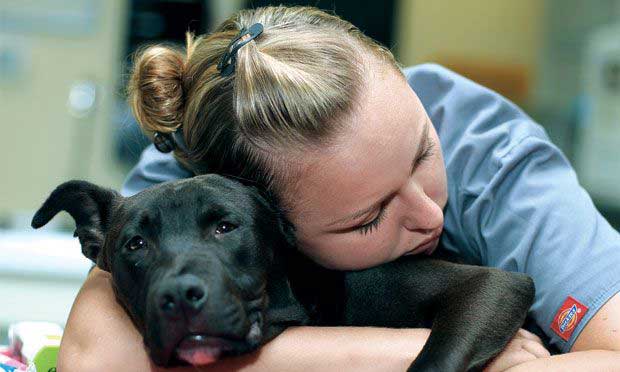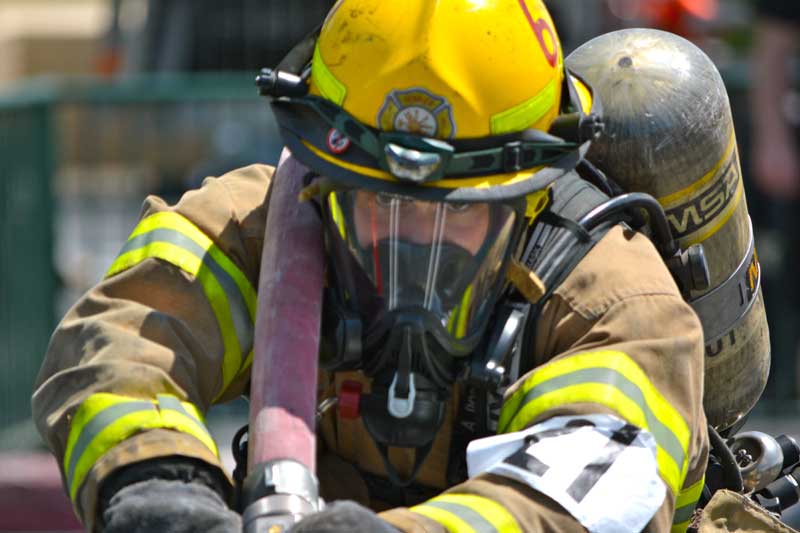compassion Fatigue
What is Compassion Fatigue?
Compassion Fatigue is similar to, but more intense and complicated than professional Burnout. It is a condition common among individuals who work directly with trauma victims such as nurses, psychologists, doctors, first responders, counselors, as well as people who work in animal care, animal advocacy and rescue and social justice workers.
While symptoms for burnout include physical and emotional exhaustion, symptoms for compassion fatigue also include hopelessness, a decrease in experiences of pleasure, constant stress and anxiety, sleeplessness or nightmares, and a pervasive negative attitude and world view.
Compassion Fatigue was first recognized as different than professional burnout in nurses in the early 1990s and has since been studied among other helping professionals. While Compassion Fatigue has most commonly been recognized and treated in those working in the human caring professions, those working with animals are now equally recognized as suffering from compassion fatigue. Veterinarians, in particular, suffer alarmingly high rates of depression and suicide
Recognizing Compassion Fatigue
Compassion Fatigue symptoms are normal displays of stress resulting from the care giving work you perform on a regular basis. While the symptoms are often disruptive, depressive, and irritating, an awareness of the symptoms and their negative effect on your life can lead to seeking help to create positive change, personal transformation, and a new resiliency. A combination of the symptoms listed below can lead to burnout and is often responsible for the loss of many talented, valuable professionals.
Compassion Fatigue symptoms are all normal reactions to abnormal/traumatic events. You are not crazy. However, If you are experiencing four or more of the warning symptoms listed consistently, for more than a few weeks at a time, and you are recognizing the red flags, take action and get the support you need.
Symptoms of Compassion Fatigue
- Abusing drugs, alcohol or food to mask feelings
- Anger or irritability
- Anxiety
- Apathy (no longer find activities pleasurable)
- Bottled up emotions
- Blaming
- Chronic lateness
- Compulsive behaviors such as overspending, overeating, gambling, sexual addictions
- Depression
- Diminished sense of personal accomplishment
- Experiencing frequent flashback, intrusive thoughts or nightmares
- Fatigue or low energy (physical, mental or emotional)
- Frequent headaches
- Feeling numb, empty or hopeless
- Feelings of guilt
- Grief
- Gastrointestinal complaints
- Hopelessness
- Hypertension
- Inability to maintain balance of empathy and objectivity
- Less ability to feel joy
- Lack of motivation
- Negative worldview
- Relationship conflicts
- Poor concentration
- Preoccupied most often
- Poor self-care (i.e., hygiene, appearance)
- Sleep disturbances (insomnia or hypersomnia)
- Suicidal thoughts
- Workaholism
- Work issues (tardiness, absenteeism, coworker(s) conflict )
Who Is Affected By Compassion Fatigue?
Health care professionals including doctors, psychologists, nurses, first responders, counselors, veterinarians, animal advocates and those working in animal rescue or shelters, and social justice activists just to name a few.
Physicians, nurses, first responders and those in mental health and care giving professions may experience a deep physical, emotional and spiritual exhaustion accompanied by acute emotional pain at times, accompanied by burnout and will adapt to their exhaustion by becoming less empathetic and more withdrawn. Whereas those with Compassion Fatigue often continue to give themselves fully to their patients and clients, finding it difficult to maintain a healthy balance of empathy and objectivity.
Veterinarians. A 2014 federal Centers for Disease Control online survey of 10,000 practicing veterinarians published in 2015 found that more than one in six American veterinarians has considered suicide. Veterinarians suffer from feelings of hopelessness, depression, and other psychiatric disorders two to three times more often than the general population. Two studies published in the British Veterinarian Association’s journal, The Veterinary Record, found suicide rates are double or more those of dentists and doctors, and four to six times higher than the general population.
The tragedy is counter-intuitive: Most veterinarians have wanted to go into animal medicine since childhood. They are among the lucky few who achieve their dreams, devoting careers to saving animals’ lives.
A 2012 survey of veterinary professional association directors across the country and practicing vets in Alabama found only 11 percent of veterinarians were aware that suicide is a problem in their field. Yet if you ask your vet, chances are he or she knows of a colleague or classmate who has quit the profession, burned out or worse.
Most veterinarians claim their unique problems have very little to do with their clients, the animals they love and care for. The reasons for Compassion Fatigue in the profession has much to do with the people who adopt animals. Long term exposure to animal conditions of abuse, neglect, or situations in which well intentioned people can’t afford to care for animals, or choose to have healthy pets put down, euthanasia, and dealing with grief-stricken clients all contribute to high rates of Compassion Fatigue in veterinarians. Veterinarians have to witness, and often assist, in a healer’s most wrenching moment, far more often than doctors and for many reasons, including the fact that animal companions lives are shorter than humans. In addition, many veterinarians carry huge debt from vet school, which can cost as much or more than medical school. But most veterinarians will earn less than a third what doctors and dentists do, mainly because they charge less and don’t get reimbursed by Medicare, Medicaid, and insurance.



Animal Advocates and Social Justice Workers. Social justice advocates willingly and regularly attempt to inhabit the hurting places of humanity and animals in an effort to evoke social change and lessen the suffering of others. Those who fight oppression, animal cruelty and champion issues of diversity in all forms, are at risk for vicarious trauma, including compassion fatigue and burnout. Factors mitigating the ways and extent to which they may experience impairment include socioeconomic status, ethnicity, gender, race, family history, genes, sexual orientation, personal and professional habits of mind, speech, and behavior, and the culture of the employer and other organizations in which they participate. Beyond the personal suffering that compassion fatigue or burnout may cause, social justice workers risk impaired professional performance.
Those working in animal advocacy and social justice are often stigmatized and self-isolated from mainstream spaces. They are often not able to talk about their work, feelings of hopelessness, grief and exhaustion openly with either their animal rescue co-workers or their other friends and family outside of the realm of advocacy work. They often do not recognize they are suffering from compassion fatigue and are in need of a safe place in which to share their feelings so that they do not burn out.
At IAR we know from our own work in animal advocacy over many years that this problem is endemic in the wider animal rescue and advocacy community. and while there are plenty of resources out there for those suffering from compassion fatigue, too few people know about them or avail themselves of them. Left untreated or addressed, compassion fatigue can impact personal and family lives, and ultimately lead to burn out, often resulting in an end to the ability to continue activism.
Our Compassion Fatigue program and support groups help the social justice activist to develop resilience, community with others in the same unique position and go on to continue advocating effectively for cultural transformation.
Our Compassion Fatigue Recovery Program
Our Compassion Fatigue Therapy programs were specifically designed to ensure those who show so much compassion and care for others, learn self compassion and care in a nurturing and supportive environment in order to begin the process of healing themselves. Each program is individualized to your needs and may include individual counseling, group therapy, other modalities offered at our holistic health clinic, and support groups. Our programs were designed by a team of experts which include physicians, trauma informed mental health clinicians, counselors and advocacy experts.
Contact us for your initial consultation to see if we can help.
Confidential, Compassionate Help is Just a Phone Call Away

Recovery for Mind, Body & Spirit
IAR offers an integrative, holistic way forward for those seeking help with drug and alcohol addiction, other forms of addiction, mental health disorders, compassion fatigue.
Our Location
Westboro Spine Holistic Health Center
20 South St.
Westborough, MA 01581
Call us Confidentially
508-366-6044

